Chin program highlights Cire pathways
A new Cire program to assist the Chin community has also highlighted the opportunities that Cire offers TAFE placement students to make a real difference to the lives of others while learning the necessary skills for future employment.
Burmese English and Recovery (BEAR) has been enthusiastically welcomed by local Chin people since its July launch to help the community navigate the challenges of COVID and creating future pathways. One of the main focuses includes providing Chin women with practical English skills so they can understand health messages and directives and other important information.
Delivered at Chirnside Park Community Hub which serves a significant Chin population in Melbourne’s outer east, BEAR was designed by Cathy Day while undertaking a placement with Cire as part of her certificate studies in Community Services. Cathy also assisted with securing the necessary funding through the Priority Response for Multicultural Communities during Coronavirus program Phase 2. Having completed her work placement hours and well on track to securing her additional qualification, Cathy is now casually employed by Cire to deliver the program under the supervision of the Hub Manager.
“It’s incredibly rewarding to see the development of this program from a seed of an idea through to fruition … The happy faces of Chin women involved makes all the hard work worthwhile,” says Cathy.
Given the current lockdown, BEAR is being delivered by ZOOM to ensure continued support, particularly during tightened restriction periods.
Feedback from a recent Zoom (pictured) where participants were shown how to book online for COVID vaccines, highlighted the value of the program:
- This program is fantastic and I feel comfortable in the group- Aye Aye
- I like to practice my English skills and enjoy the sessions- Za Chin
In the following account, Cathy describes how BEAR came to be and her own journey.
It all started when another community house contacted Cire on behalf of a group of Burmese women from the Chin community wanting English as a Second Language (ESL) classes.
At the time, I was doing my student placement with Cire and said I could potentially facilitate a conversational English group as I had previous training in ESL.
The then Hub Coordinator, Naomi Taylor and I did some brainstorming and fortuitously, at the end of that day, we became aware of a perfect funding opportunity available through the Victorian Government’s 2020/2021 Priority Response for Multicultural Communities during Coronavirus (COVID-19) Phase 2. We were confident we could graft conversational English into a program that would address the grant criteria as well as help this community recover and move forward from some of the difficulties experienced due to COVID.
Working with Naomi, Community Hubs Manager Jenelle Strachan and Cire’s Partnerships and Funding Manager, Sandra Bucovaz, we subsequently submitted a detailed application for funding in late April and crossed our fingers.
Within weeks we were in another lockdown and while completing the final weeks of my placement working from home, Jenelle asked me to fine-tune our proposal further. This would help move things along quickly if our grant application was successful, as well as provide me with invaluable experience in designing a meaningful and thorough program.
These preparations included drafting a parallel program to engage children while their mothers/carers were participating in BEAR, further scoping relevant agencies who could help promote the program or provide advice, and source appropriate recipes if we were crazy enough to try and cook Burmese food.
At the same time, and to deepen my understandings, I completed my own small research paper for TAFE on the effects of COVID on the Chin community.
Whilst still in lockdown, Cire was advised that our application had been successful. I was overjoyed that Cire was going to be able to assist the Chin community which was now extremely distressed due to the situation in Myanmar and the continual impact and uncertainties of COVID, all of which was having a cumulative impact on their mental health and sense of vulnerability.
Having finished my placement hours, I approached Cire to see if I could be involved with the delivery of the program which I had named BEAR. Thankfully, this became a reality, so the consultation process began almost immediately to ensure delivery by the end of September, as required under the terms of the funding.
We worked through unexpected challenges that caused some initial delays. These included securing community leader permission before advertising any program for the Chin community. Also, no one joined an information session/ consultation via Zoom. Thankfully they had the wrong date but we had to reschedule, putting us behind by another week.
The community leaders welcomed the initiative and promoted the program through their networks which were hugely beneficial. We also received positive responses from other community groups such as Maroondah Council’s culturally and linguistically diverse (CALD) early childhood network.
In further preparation, Cire engaged Van Cer Hnem as a translator to assist with the delivery of BEAR. Van has done an amazing job promoting the program at her local church and to family and community members and encouraging them to participate.
Then, just as we were about to launch the first of our 10 weekly BEAR sessions, Melbourne was plunged into another lockdown.
Fortunately, restrictions were lifted in time for us to start on our scheduled date of 29 July. To be honest we were not sure whether anyone would show up just two days after the lockdown was lifted and given the restrictions on numbers. However, they did and we were delighted to welcome six women and three gorgeous pre-schoolers.
Cire organised some food from Little Burma which was a treat for us to try, but more importantly, it was something familiar to the women, helping build trust that they were in a safe place. While the women engaged in BEAR, placement students, Mythilli and Jo, delivered the preschool program with the children creating a koala face and learning how to make fairy bread.
During the session, the women were introduced to formal/informal greetings and how to describe themselves with a positive adjective in English drawing on a list of examples I prepared including caring Cathy and vocal Van. The exercise prompted some giggles.
The women’s English is very limited, so it is great having Van working very hard assisting.
During that first session, we used visual aids to help ascertain what the women would like to learn and how we can best tailor the program to meet their needs. We also gave them each a booklet containing support information and resources such as details of local Burmese doctors and mental health and refugee supports.
As part of the government requirements that we help these women with government health messages, we taught the women how to use the QR code and Van read the current guidelines and restrictions in Hakka Chin ensuring they fully understood.
The women were also very grateful to receive food items from the Chirnside Hub’s community pantry trolley and a pack of Good360 goodies. This also fulfilled Cire’s responsibility to provide material aid, as well as a meal.
The women’s happy faces boosted our confidence that they would continue and also bring others.
It is a privilege to be part of this Cire initiative which will result in many positive outcomes in the coming months.


